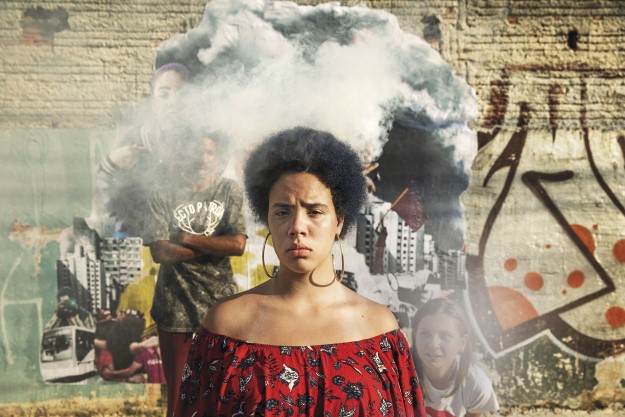This article is adapted from AQ’s latest issue on the politics of water in Latin America
In 2015, thousands of São Paulo students occupied their public high school buildings and refused to leave until the government reversed its decision to shutter 93 schools across the city. Many of the students involved had learned a lesson two years earlier, when widespread protests helped stop a proposed bus fare increase.
Among those captivated by the teenagers’ spontaneous display of civic dissent was Brazilian director Eliza Capai. Several recent films have drawn inspiration from Brazil’s recent run of street protests. But Capai’s documentary, Espero tua (Re)volta (Your Turn), is the only one to turn its gaze on young people’s fight for an education. The film opened this year’s Berlinale Generation competition, taking home the Amnesty International Film Award.
Narrated by three high school students, the film borrows from their youthful forms of expression — editing and storytelling move quickly to convey a teenage sense of urgency, mixing good times and adolescent angst to spotlight a group of young people with a clear sense of purpose.
Marcela Jesus, Lucas “Koka” Penteado and Nayara Souza are all 17 when we meet them in the film. They share the microphone as if still abiding by the egalitarian rules of the student movement: “We’ll each have five minutes,” one of them says over the opening credits.
The students come from different schools and backgrounds, though Capai has focused on the periphery and the forgotten youth who belong to a generation that, unlike their parents, feels empowered to fight for recognition.
The experience of growing up amid street protests is treated with a sympathetic eye. Instead of geography or history classes, students learn to calculate how many school lunches a tear gas cannister is worth. A scene with a 15-year-old being taken away in handcuffs chanting about his right to go to school is gut-wrenching, especially for those of us who are parents.
Capai was clearly moved by her subjects’ passion and surprising maturity. Over the course of the film, the three young narrators discover themselves and gain a fuller awareness of their plight as underprivileged youth. The result is a coming of age story of young kids for whom being searched by the police is just a fact of life.









